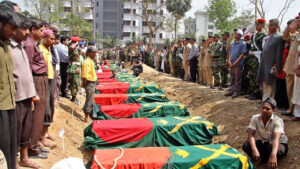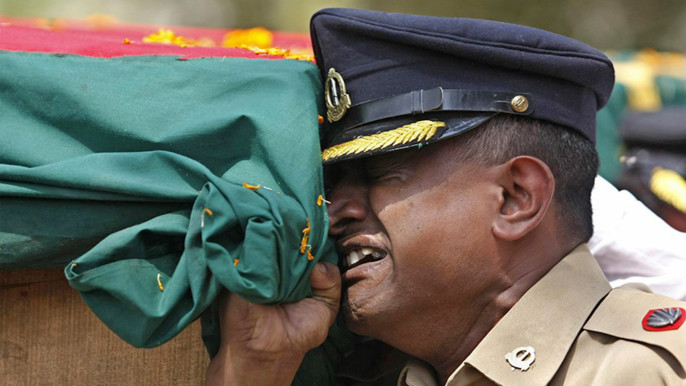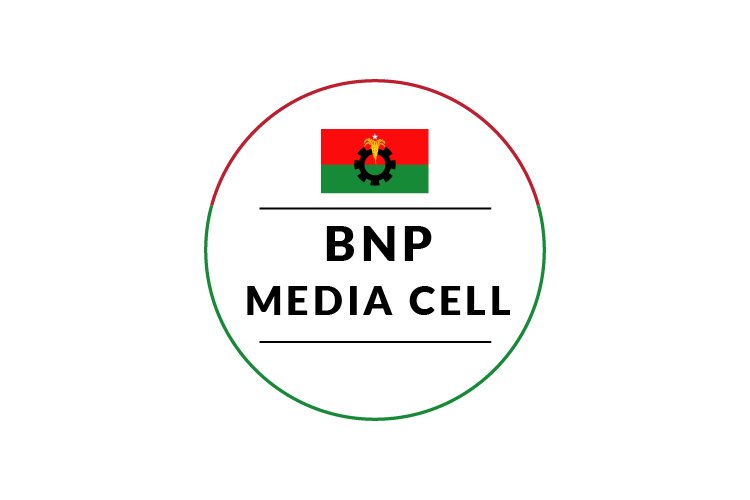Major Shafayat Ahmed (Retired)
I have always considered myself a strong individual; both mentally and physically. Hailing from a military family, I have grown up seeing my father and his colleagues dealing with hardships. I have grown up hearing stories of battles, of bloodshed and of death. I have seen my bereaved friend or classmate coping with the sudden loss of his/ her father after he was killed in the line of duty. These experiences made me quite strong emotionally. So when I had grown up and followed my father’s footsteps into the army, I was already regimented enough to handle losses of supreme magnitude; or so I thought. But all my self-professed machismo was shattered to the core on the fateful day of 25 February 2009. Everything that I had ever learnt about soldering and the military way of life was put under question. Even after a decade and a half, I still couldn’t find an answer to those questions.
Military is a place that teaches an individual the fundamental values of a soldierly life from day one – self-respect, discipline, comradeship, esprit-de-corps, etc. As men in uniform, we are expected to display the highest standard of such traits in every aspect of our lives; both professional and personal. Yet on 25 February 2009, all of these teachings felt pointless as we sat idly when fifty seven of our brothers in arms were systematically murdered in broad daylight in the middle of the capital. Each of them were frantically trying to call for help as the murderers were hunting them down. But to their utter disbelief, they were forsaken; left behind. As soldiers, death in the line of duty is just another occupational hazard for us. But none of those who were killed on that day deserved such cruel death in the hands of the assassins; defenseless and abandoned.
25th February 2009 started off just like any other day for me. I was a young lieutenant; with little more than two years of service. I was posted in Bogura at an infantry unit. That morning I was supposed to join the unit firing team at the firing range for a practice session. Hence; I didn’t have to go to the morning PT. The inter-unit firing competition was ahead where an officer’s participation is mandatory in every team. Among my unit officers, the standard of my firing was slightly better; therefore I was nominated as the team captain. That morning my firing team had already left for the firing range ahead of me to prepare. I had to make a stop at the office prior to going to the range. I was away from the unit for the previous two days, hence I had to clear some pending tasks before leaving for the range. The firing range in Bogura is about two to three kilometers away from the cantonment. I was on my way to the range; my pickup truck was still inside the cantonment. That’s when I got a call on my cell phone from a friend in Dhaka. He asked me, ‘What’s happening in Pilkhana?’ I was quite surprised with the question and asked him, ‘Why? What happened?’ He told me, ‘Isn’t there some army-BDR fight going on there?’ I laughed it off and hung up. Just as I had hung up, my pickup crossed the cantonment gate, and at that moment, I received a call from my CO (Commanding Officer). He asked, ‘Shafayat, where are you?’ I casually replied, ‘Sir, I just left the gate and heading towards the range.’ He said in a somewhat impatient tone, ‘Immediately return to the unit with the firing team, deposit all your weapons and ammunitions, seal the kote (armory) and magazine (ammunition store) and hand over all the keys to me.’ I was quite astonished to receive such an order; till then I had no idea about what was going on in Dhaka. But there was something in CO’s tone that made me a bit anxious, so I quickly returned to the unit, instructing the firing team to come back as well. Upon returning to the unit, I entered the tea-bar of the officers’ field mess and saw the live telecast on TV from the gate of Pilkhana. That’s when I first got to know what was happening. That day after I had left my room at the bachelor officers’ mess, we were not allowed to return till further order. Even the married officers were also ordered to stay in the unit. All weapons and ammunitions were placed in their respective stores except for those used by the personnel deployed in the security. Keys to all these stores were handed over to the CO of the unit; usually they stay with the Master Warrant Officer (Subedar Major). All the routine training activities came to a standstill as we spent the whole day and night in front of the TV at the field mess. Even then, disbelief lingered; I was in a whirlwind of uncertainty. I had always known BDR to be a huge asset to our national security. My father served twice in BDR on deputation from the army. Even at the time of my birth, he was posted to BDR. I myself studied for 9 years (from Class 4 to HSC) at the BDR’s educational institution Rifles Public School and College. I stayed in Pilkhana for roughly two and a half years. I knew the entire area like the back of my own hand. The Darbar Hall where the ordeal started; stood right opposite to my school where I used to play football as a kid! Just twelve days ago, on 13 February; there was a re-union at my school that I attended. I just couldn’t comprehend the fact that my very own Pilkhana is scene to such a bloodbath. When the first wave of the corpses of the slain officers was recovered from the sewage system in old Dhaka, I can never express my feelings of that time ever!

Slowly, as every event was unfolding, we were all becoming restless inside the units. Everyone had questions in their minds, “why the army isn’t taking any action?” We were frantically calling our course mates or familiar senior/ junior officers in various units of Dhaka, asking if any action was being taken. I couldn’t get any solid information from anyone. At that time, Dhaka’s MIST (Military Institute of Science and Technology) probably had the largest concentration of young officers. Most of them, on their own initiative, took their cars and motorcycles and went to to Dhanmondi. Abahoni field was designated as the ‘Concentration Area’ for the supposed military operation. Everyone was going there and reporting with nearly similar mindset, “Sir, we have so many officers here. We don’t even need soldiers; just give us weapons and ammunition, we’ll conduct the operation.” I had few of my course mates among them too. We were calling them one after another. They were giving us updates from time to time – they have been told to be ready, weapons have been issued to them, tanks have arrived from Savar, so on and so forth. But suddenly, we heard on the 26th that the operation might be delayed a little. Then again, another delay. At one point, all the units that were positioned near the gates of Pilkhana were instructed to fall back and redeploy to positions further from Pilkhana. The night of the 26th went by doing all these meaningless movements. As the orders were finally given on the morning of 27th to move in, there was nothing left inside. It was all over by then! And thus, right before our eyes, the biggest planned massacre in the history of our country took place!
They were all my brothers. Not by blood; but by something even stronger than that. This brotherhood was not inherited at birth; it was earned. We earned it with sweat, with blood. We earned it from the scorching heat of burst firing machine-gun barrels. We earned it by jumping together out of roaring airplanes into the endless blue sky; fearless and resolute. We earned it in the hills and jungles. We earned it by sharing the last puff of the last cigarette from our pack. Just with this belief – my brother won’t leave me behind, he will surely come and get me, shattering all barriers; in my danger.
My brothers were waiting for me that day. Their faith was in me. Everyone was waiting with utmost confidence that I will surely come. Still with that belief, their disbelieving eyes took their final gaze at their murderers before they closed for good.
I also had faith. But I was loyal. I was ordered to stay prepared; to wait for the order. I too was prepared; waiting for the order. That order never came in the last 15 years! Yet, I was loyal; I still am.
I also had faith that no one could escape. Everyone will reap the fruits of their actions. But everyone was let loose. Yet, I was loyal; I still am.
We were called upon; in Dhaka, in Chittagong, in Cumilla, in Jashore; everywhere. We were asked to speak our minds. Those who did, almost everyone would be lost too within a short time. Yet, I was loyal; I still am.
I was loyal; I still am. That’s why I now count the pillars of the Padma Bridge. That’s why I now bank the extra bonus after election duty; I operate my new iPad with joy. That’s why I now buy a brand new car with the ‘no-interest’ loan; upload pictures on Facebook. But still, sometimes at night deep in my sleep, like a nightmare, my brothers appear. In their eyes, there is no more trust now. There’s disbelief and hatred instead; there’s pity instead.
Please forgive me brothers; please forgive me…
Major Shafayat Ahmad (Retd.)


